In recent years John Herety is best known for his work as manager of the various incarnations of the popular and successful Condor continental team.
But he’s a man who’s ‘got the T-shirt’ – British and French amateur Classic wins, a Peace Race stage, a year with ACBB, three years with Coop Mercier, the British Professional Road Championship, the GP Pino Cerami (nearly) and a stage in the Tour of Britain Milk Race (eventually).
We kicked off by asking John about his early mentor, the legendary masseur and coach the late Harold Nelson BEM, more popularly known simply as, ‘H.’
“I wasn’t particularly good at cycling when I was young, I did three sports, soccer, lacrosse and cycling but cycling was the one where I had most fun.
“I started working with ‘H’ when I was 15 or 16 years-old, he wasn’t like your modern day coaches, all numbers; I guess he was more of what you might describe now as a ‘lifestyle coach.’
“He preached balance and discipline, don’t try to cram things in, be organised.”
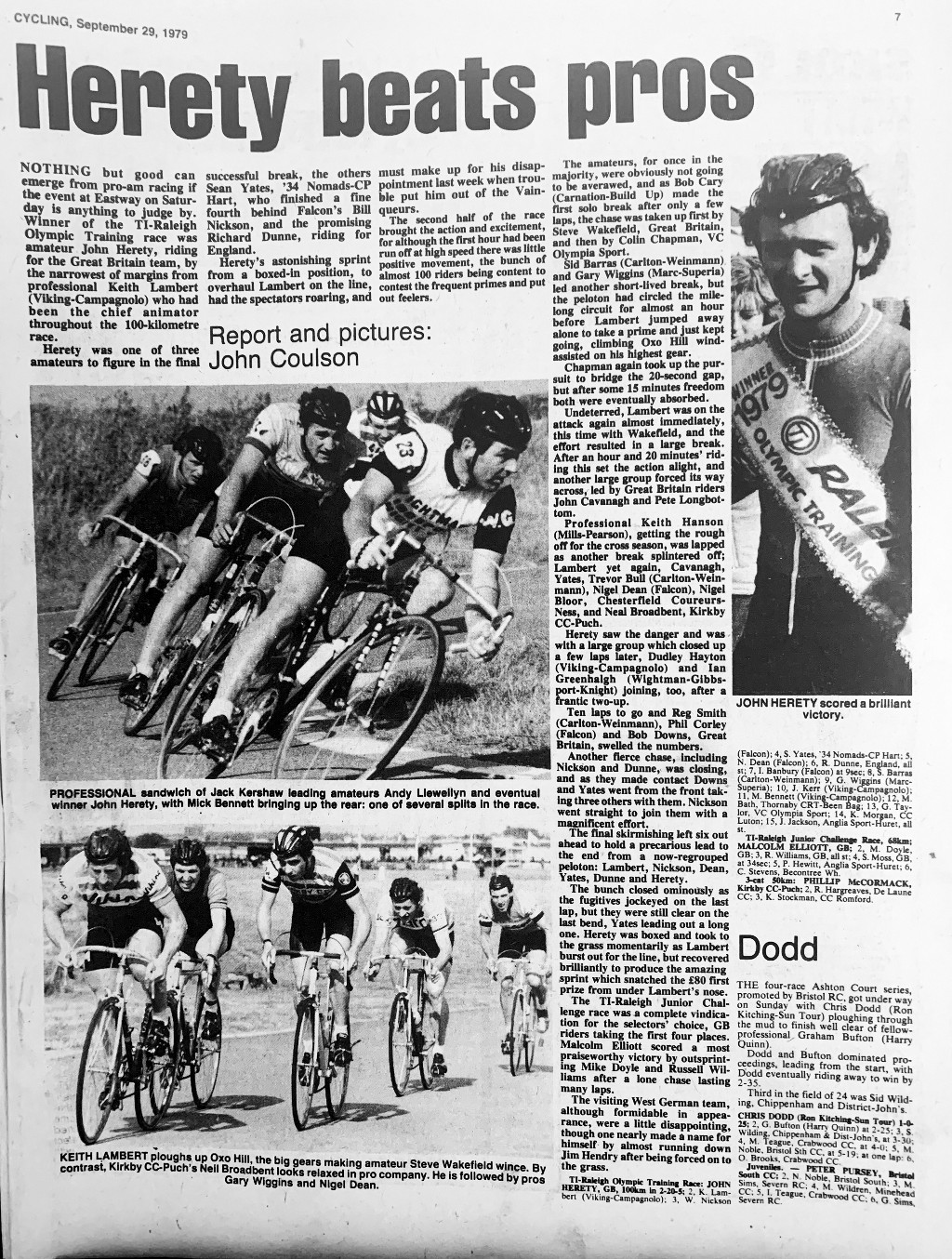
Your breakthrough year was 1979, what was that down to?
“Paul Sherwen [r.i.p.] – who was another ‘H man’ – and Graham Jones.
“Training with them on a Saturday and Sunday, but what I also did that year was to take my 14 days summer holidays as 28 half days so I could get in a big training run on the Wednesday afternoon.
“I was still working full time then and management wasn’t best pleased with that but it made a big difference to my training.
“I had a great start to that year, winning the first three big races of the UK season straight off.”
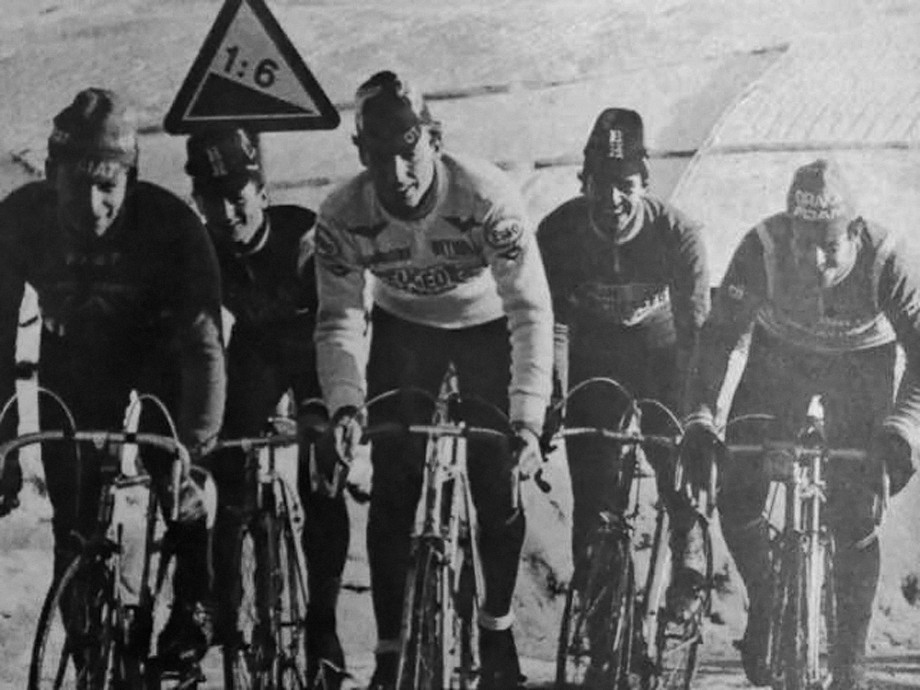
A Peace Race stage win in 1980.
“I’d ridden the race in 1979 too but strained a calf muscle and – embarrassingly for a chef – had stabbed myself while cutting open a bread roll and needed three stitches!
“But in 1980 I’d gone full time on the bike, ‘H’ was anti-dole but I’d been made redundant at the end of 1979 and wanted to give myself the best opportunity to gain Olympic selection.
“It meant I could train more but also I had more recovery time – which is so important.
“In the Peace Race the East Europeans were just so strong, with the Czechs desperate to win at home, the East Germans the same, and the Poles too – whilst the Russians just wanted to win everywhere.
“The Milk Race was a big race in the UK but the roadside crowds at the Peace Race were incredible, double what you’d see in Britain.
“I never knew if I was going to have a good day on the bike or not but that day we hit a big wide cobbled, 1-in-4 ramp, I started at the back of the bunch but was at the front at the top so knew I had good legs then.”
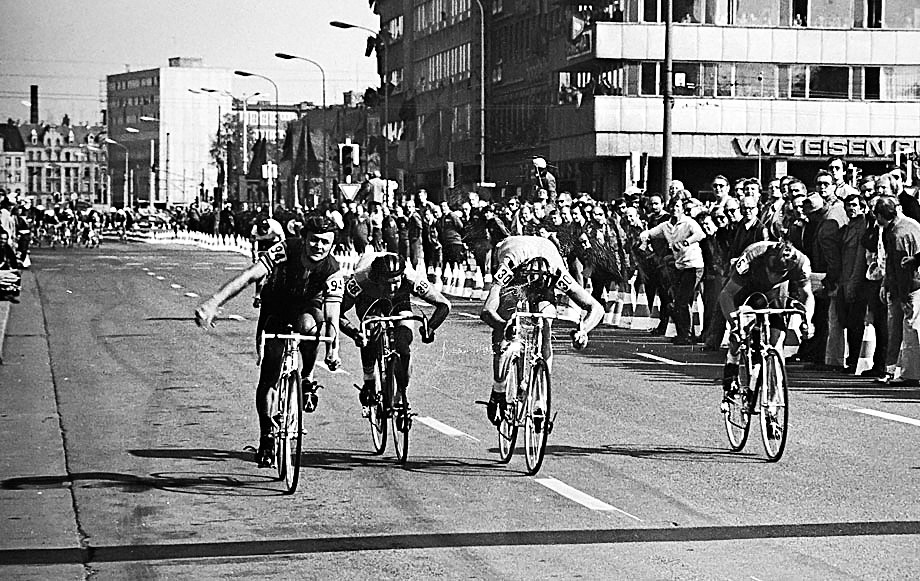
“I got in a little late break, we stayed away and the Polish guy Wojtas started his sprint from a long ways out; he gave me a perfect lead out.
“We were in a town called Karl-Marx-Stadt in Germany which was twinned with Manchester, my home town. The next day was a rest day and there was a presentation where I received a set of steak knives.
“I thought that the KGB must have checked my background and sussed out that I was a chef.
“But it transpired that the truth was just that Karl-Marx-Stadt was a steel town, like Sheffield.
“That Peace Race stage win stood me in good stead in later years, all the continental DS’s knew how hard it was to win in that environment.”
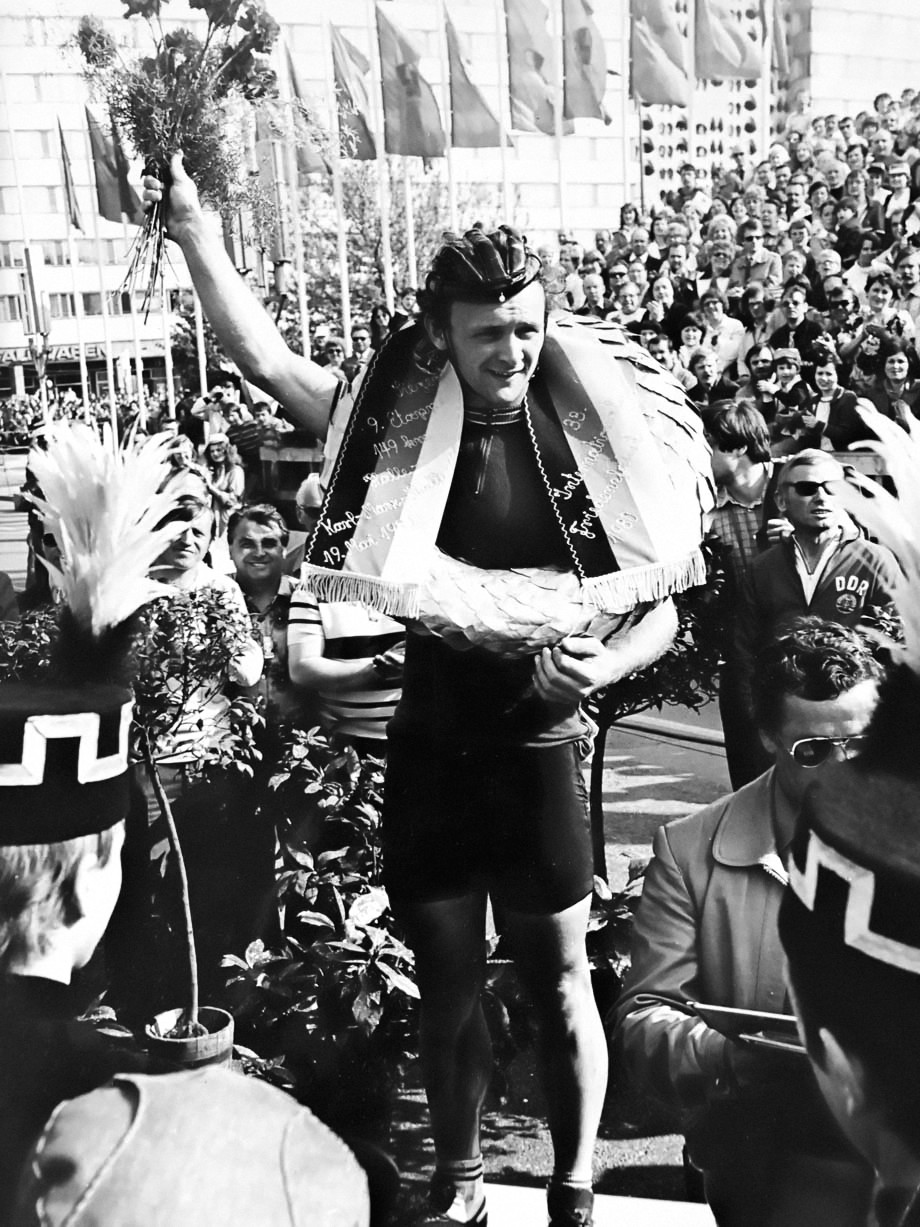
And more ‘behind the Iron Curtain’ stuff at the 1980 Moscow Olympics.
“The British Prime Minister of the time, Margaret Thatcher actually wanted to boycott the Games but it was eventually agreed we’d go but not attend the opening or closing ceremonies.
“It’s not like it is now where the team flies in just before they ride then out again after it, we were there for some three-and-a-half weeks.
“Nowadays the guys come back from the Olympics with suitcases full of goodies, we got some Polish cosmetics…
“You could only train on the race circuit or on the TTT course on the Minsk highway.
“The circuit was a similar concept to the old Eastway circuit in London but longer and hillier – it had obviously been designed to suit the Russian style of ‘power riding’ with big sweeping curves you could pedal all the way round.
“The TTT course was 25 K out and back to be ridden twice, the only time we got to go further was the occasion we tagged on to the Russian team – at the point where we usually got turned back, we sailed through.
“It was a big adventure for me but in hindsight it was all a bit boring on the same roads all the time.
“It was a hilly circuit and whilst I’m no climber I was best GB finisher in 21st place in a group with the likes of Gilbert Glaus, Jacques Hanegraaf, Peter Winnen and Francis Castaing.
“There were no dreams of medals but I did my best and rose to the occasion.”
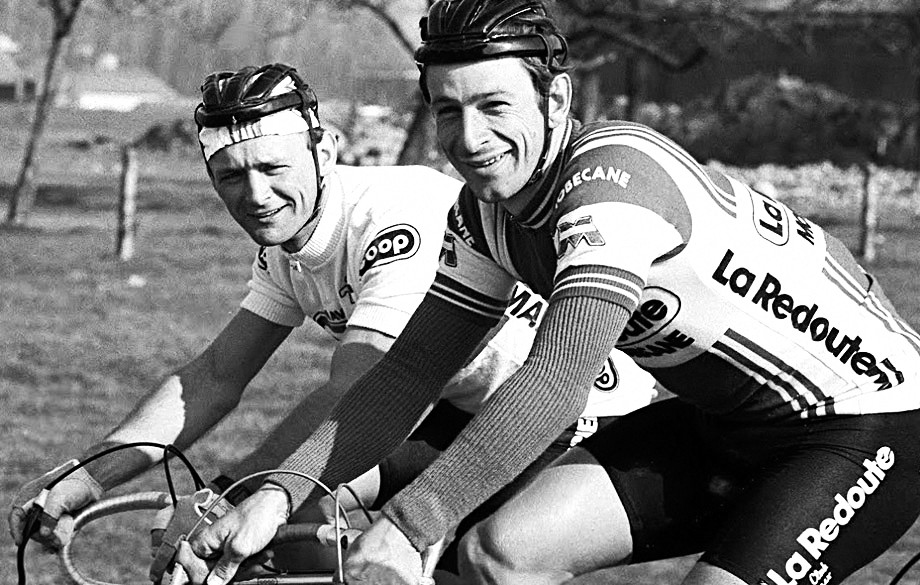
ACBB?
“Paul Sherwen helped again, when he won the GP Pernod in 1977 the ACBB were there and were impressed, he was away practically all day to win that.
“That started the trail, then Graham Jones, then me.
“I had no big ideas about what I was going to do after The Olympics but as far as ACBB were concerned, it didn’t hurt that I’d won a Peace Race stage.
“I’d gone over to France after the Olympics in 1980 with Jeff Williams for a ‘taster’ of what to expect.
“But at the start of 1981 I was skint with no money to travel to France so I got a lift over with Graham Jones who was going over to start his third year with Peugeot.
“I got over there at the end of January and the club liked the fact that I was keen to get there early.
“My French wasn’t good but Sean Yates and I went down to the early training races on the Cote d’Azur where we battered the French guys, there were about 10 races and between Sean and I we won most of them.
“When we were down there Sean went for a meal with Peugeot and he was earmarked for the team.
“If you were with ACBB then the usual route was to go to Peugeot but the team rode Wolber tyres and they were setting up a team where I was originally destined for; there were too many Anglos at Peugeot.
“The guys behind ACBB were ‘Mickey’ Wiegant and Claude Escalon.
“I was at the Salon du Cycle bike show with Escalon and he said to me that Wolber were trying to flick me and I should come with him.”
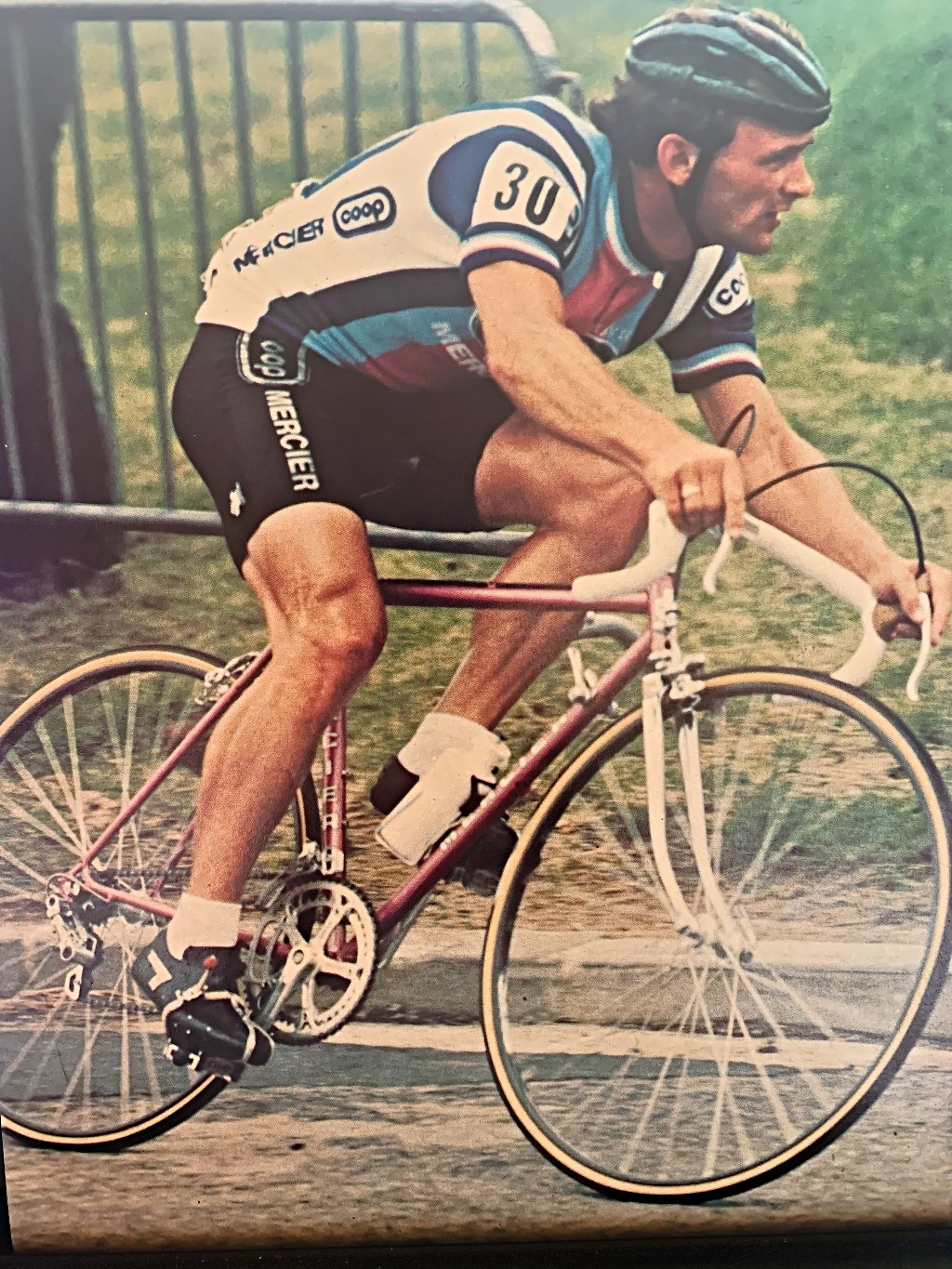
You ended up signing with Coop Mercier?
“Yes, the Mercier team had a new sponsor, Coop Supermarkets and we went to their stand at the show. The team manager, Jean Pierre Danguillaume was there.
“He was one of the few non-East Europeans to win the Peace Race so he knew the value of my stage win and we arranged a contract right there and then.
“He arranged for Sean and me to move into the flat above his bike shop, which was great.
“But you know, it was really the beginning of my career.
“Sean and I used to have joking arguments about what quality was more valuable in a rider from the team’s point of view; to be a big strong time tester or a sprinter?
“I always remember what Claude said; ‘neither, it’s good health that’s the most valuable quality.’
“I thought to myself, ‘well, I’ll be fine, I’m never sick.’
“But the longer races and heavier race programme was really too much for my system, year one was fine but I went steadily downhill from there.
“By the end of the third year I was sleeping 18 hours each day.”
The 1982 GP Pino Cerami, you were second?
“I was flicked!
“Ronny Van Holen was the local hero, he was World Junior Road Race Champion in 1977 and in 1980 was the top winner among the Belgian amateurs with 33 wins; he went on to win the Omloop Het Volk in 1988 – but I definitely crossed the line first.
“Unusually, Sean Kelly was DNF that day and he saw the sprint, he came up to me at the finish and said I’d been robbed.
“But it wasn’t until later in the year when I was in Spain training with Graham Jones during the Tour that I discovered that was an important race.
“There was a full page advert for Clement tyres and one of the successes they listed was Van Holen winning the Cerami.
“I said to Graham; ‘look at this, they’re advertising a success in a two bit kermis.’
“Graham just looked at me and replied; ‘that’s an important race, mate!’”
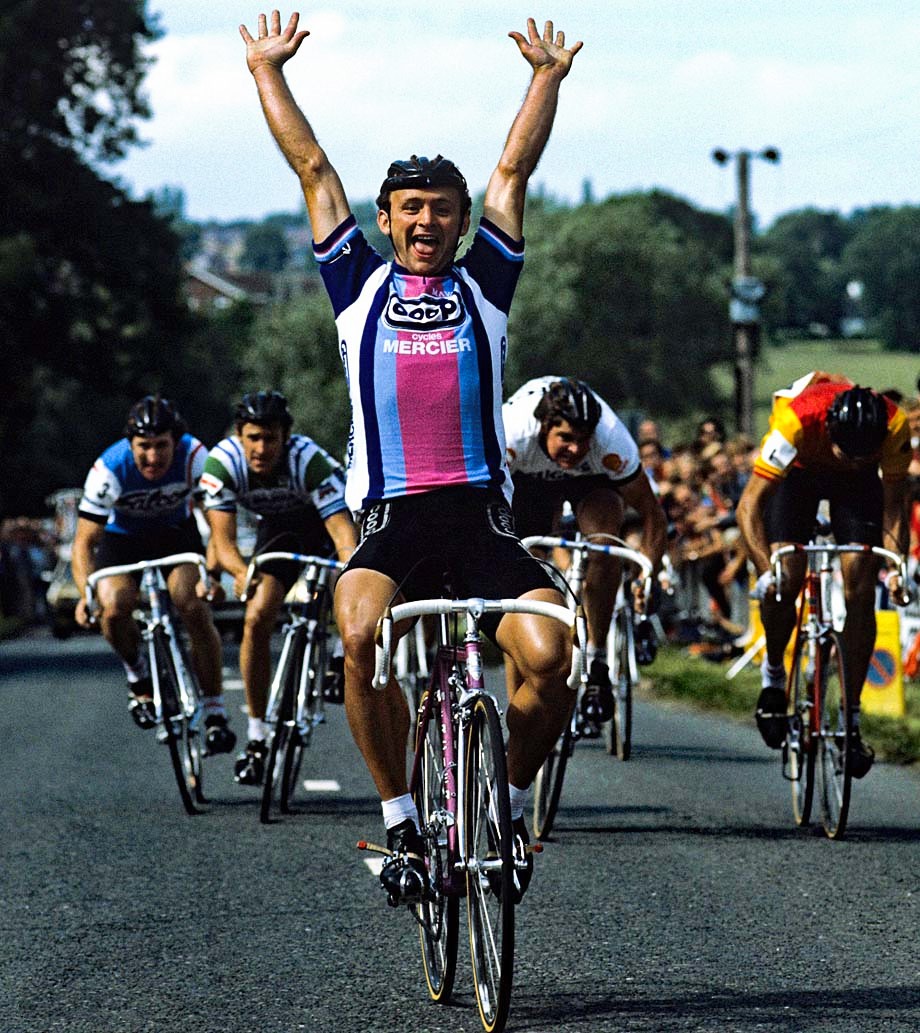
You won the British Road Race Champs in ‘82, was it; ‘them and us’ with the home pros when you ‘Continentals’ came over?
“Oh God, yes!
“Bill Nickson still doesn’t speak to me properly on account of that one!
“There was a break of seven; me, Sean Yates, Bill Nickson, Paul Sherwen, Keith Lambert, Phil Bayton and Tony Doyle – and that was the order at the line.
“Paul had wanted to win but couldn’t reach an ‘agreement’ with the others so he said to me; ‘right, sit on, you’re winning this!’
“So I did I was told, didn’t do a tap and won the sprint quite easily – but Sean was the ‘man of the race,’ he was so strong that day.”
You came back to race in the UK in ’85 with Ever Ready, what was that team like?
“It was OK.”
[We didn’t push that question! ed.]
Then the various incarnations of the Percy Bilton team for three years, we heard Mr. Bilton could be a little ‘fickle’?
“He was a different kind of man, perhaps in the ‘Tinkov mould’?
“He was a very generous man, he said to me; ‘what’s your biggest fear as a professional cyclist?’
“I replied; ‘not getting paid, of course!’
“He said ‘I’ll pay you your full salary for the year by January 31st but don’t come back and ask for any more; if you invest it wisely then it’ll be worth a lot more than what I pay you.’
“And he was true to his word.
“I learned a lot from him, he used to say; ‘win bonuses? I’m already paying you to win bike races!’
“The last year I raced I was ‘road captain’ and I suggested that perhaps we could save money by going down a level with the hotels the team stayed at – we all stayed at Post House hotels which were pretty up-market.
“He explained to me that the kind of people who he did business with stayed at Post Houses and having a team wasn’t just about the race results.
“That was a concept we embraced when I ran Rapha Condor.”
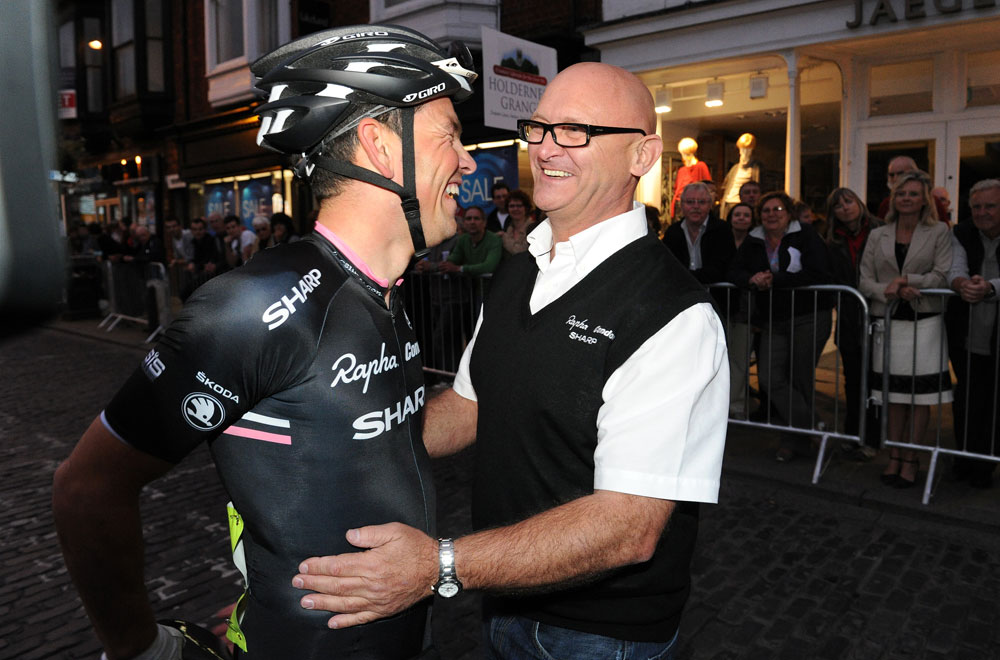
Your final season before you moved into management, you won a Milk Race stage, that must have been pleasing?
“I’m sorry but I just don’t remember that!”
[A little VeloVeritas detective work revealed that on Stage 11 of the 1987 Milk Race, the Ipswich criterium, John crossed the line in third place BUT the man first over the line, Sapranov of Russias was declassed for dangerous riding, then the man who was awarded the win, Chris Scharman (ADR & Belgium) was declassed too for failing a control, so the win went to John. ed]
Regrets?
“It would have been nice to have a longer career, which I would have done had I remained in the UK.
“At the end of 1979 I won a 100 kilometre pro-am race at Eastway, beating all the pros, they blocked me in but I came past on the grass and Sid Barras offered me a contract.
“But the Olympics were a bigger deal back then and I wanted to ride them.
“There are a lot of things that happened in my career that I don’t remember but the Olympics and ACBB are constant reference points.”
With thanks to John for an entertaining chat; the stories all seem better from back in the 70’s and 80’s.



